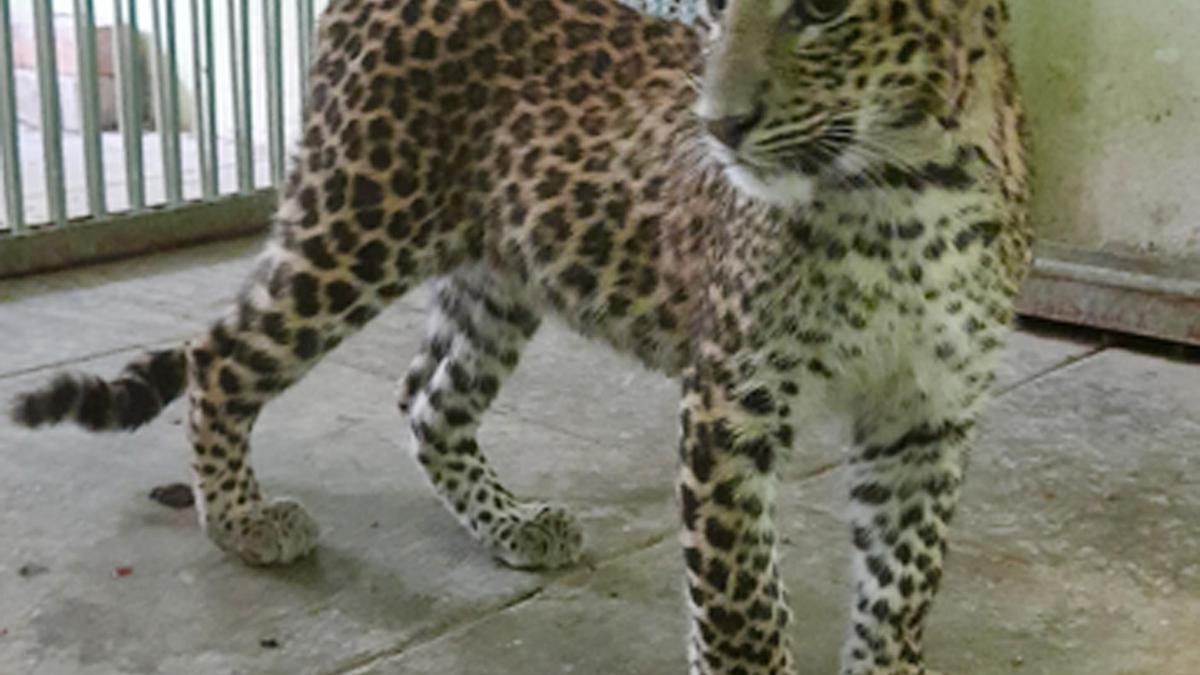
Pilikula Biological Park saves critically injured leopard cub
The Hindu
Injured leopard cub rescued and treated at Pilikula Biological Park in Mangaluru, facing vision and hearing challenges post-recovery.
It was on January 24 that Forest Department officials brought a critically injured female leopard cub for treatment at Pilikula Biological Park. The officials found the animal lying on the roadside and gasping to survive in Niddodi area on the outskirts of Mangaluru.
The two-and-half-month-old cub had suffered a head injury probably hit by a vehicle. The animal which was on the brink of death has slowly recovered now after the careful treatment by the veterinary doctor and animal caretakers at the park but only to realise that the head injury had cost its eyesight and hearing ability.
“We realised that the animal can not see when it started dashing against the walls while walking in its animal house,” the Director of the park H. Jayaprakash Bhandary told The Hindu.
“All efforts are being made to restore its vision. It has partially regained its eyesight,” Mr. Bhandary said adding that initially it was not able to hear properly. Now the hearing issue has been cured after treatment and it can hear now.
The cub, which is now about four months, was given drips, and antibiotic agents and forcibly fed to save its life, he said and added: “We are hopeful that its eyesight is restored gradually.”
It was on July 27, 2023, that the forest officials handed over about six-day-old two leopard cubs, a male and a female, found abandoned in the Moodbidri area to the park. “Those cubs were yet to open their eyes when we received them. They did not develop any vision problems. The cubs are six months old now and are healthy,” Mr. Bhandary said.
The director said that the number of injured leopards being received at the park for treatment is on the rise. “The park receives at least eight to nine such leopards every year,” he said. They get injured while being caught in snares, while falling into the open wells or while being rescued. The healthy leopards are returned to forest officials after treatment for letting into forest as the park has infrastructure constraints to keep all such injured leopards. Unlike other major zoos, the park gets no annual maintenance grant from the government and it is being managed from the gate collection, through donations and animal adoptions.











